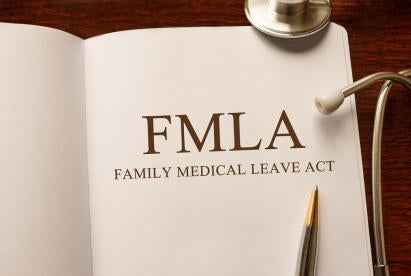It is well established that an employee need not specifically request leave under the Family and Medical Leave Act (“FMLA”) in order to benefit from the Act’s protections. Rather, the law requires the employer to take action to notify an employee of FMLA rights when the employer acquires knowledge that an employee’s leave may be for an FMLA-qualifying reason or that the employee may need such leave. The difficulty facing employers is when to initiate the FMLA process based on observations of the employee’s condition or behavior. In a recent decision out of the Northern District of Illinois, the Court held that an employee sufficiently stated a claim for interference under the FMLA because the employer was on notice of a serious health condition when she became “extremely distraught and began crying regularly and uncontrollably at work.”
In Valdivia v. Township High School District 214, a secretary claimed her coworkers made derogatory remarks about Hispanic students and their families. She allegedly complained but nothing was done. After expressing concern over whether she could continue working while in frequent distress, she was allegedly told that she needed to decide whether she wanted to continue working or resign. The employee reportedly also told the principal that she was overwhelmed, not sleeping, not eating, and losing weight but she was again given the option of working or resigning. Ultimately the employee resigned for medical reasons.
In addition to claiming a hostile work environment, the employee claimed that the school interfered with her FMLA rights by failing to provide her notice that she had the right to take job protected leave. The Court noted that the FMLA notice requirement for employees is “not demanding.” In fact, it may be possible that the employee is not even aware he/she is suffering from a serious health condition. In these cases, “clear abnormalities in in the employee’s behavior may constitute constructive notice of a serious health condition.” The school argued that it was not reasonable to be held accountable for knowledge of the employee’s health condition when she was not even aware of it. The employee was diagnosed with depression after her termination. The Court dismissed that argument and noted that uncharacteristic or unusual conduct at work may itself provide adequate notice of a serious health condition.
Employers often struggle with how to address situations involving changes in an employee’s condition or conduct. Failure to address the situation as one that is potentially covered by the FMLA or even the ADA could result in a violation of the employee’s rights under those laws. On the other hand, treating an employee as if they have a serious health condition could result in a claim that the employee was improperly regarded as disabled or, in the event of a later adverse employment action, retaliated against for having the health condition. As demonstrated by this decision, Courts and the Department of Labor tend to give employees the benefit of the doubt with respect to notice of an FMLA condition and employers must be cautious about failing to react in these situations.




 />i
/>i

